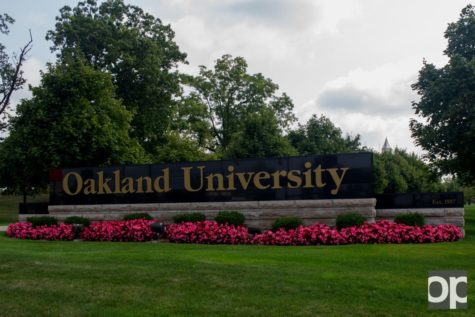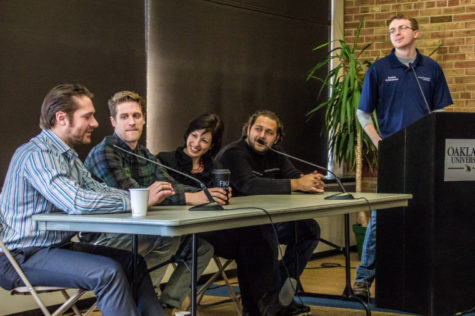OU hosts 2nd annual student retention and completion conference
The second annual High-Impact Practices: Creating a Culture of Completion Conference was held Wednesday, Feb. 5 and Thursday, Feb. 6 at the Detroit Marriott in Troy. The two-day conference featured three keynote speakers with extensive backgrounds in university education.
Interim Vice Provost for Undergraduate Education Scott Crabill led a committee of eight in organizing the conference. He is pleased with the turnout and the overall experience.
“It’s come together really well,” Crabill said. “440 people registered from 52 different institutions and corporations.”
50 hotel rooms were sold for each night of the conference, according to Crabill.
Crabill said the committee and himself were able to deliver a quality experience at a lower cost.
National conferences cost $400 to $500 to attend Crabill said.
Oakland University students, faculty, and advisors could go free of charge and those outside of the university paid $100.
These low admittance prices were made possible by support from The Kresge Foundation and other vendors, according to Crabill.
Crabill said the convention was mostly made up of advisors and administrators, but he’d like to see more students attend in the future.
“We often leave the students voice out of this,” Crabill said.
A panel of former OU students spoke on Thursday about their experiences at OU and offered offer their insight on student retention and graduation of college.
Crabill was very pleased with the response that came with the keynote speakers.
One of these speakers was John Gardner.
He is the president of the nonprofit organization the John N. Gardner Institute for Excellence in Undergraduate Education.
He previously worked as a professor and administrator at the University of South Carolina for 32 years. Gardner specializes in first year involvement and works with transfer students at colleges and universities. He says he has seen some major changes in the way administrators look at students.
“They (colleges and universities) are talking more about first year students,” Gardner said.
Specifically, Gardner says they are “being more responsive” to these students needs.
This responsiveness is needed for the change in student demographics, and how students are approaching undergraduate education in general, according to Gardner.
Gardner says he sees that many students are starting at four-year universities as opposed to community colleges, which he considers to be non-traditional.
Gardner says he talks with many of these non-traditional students. Among these students are veterans.
As the military is decreasing more veterans are going to school, Gardner said.
In 2012 Oakland University opened their First Year Advising Center. Gardner says he sees great promise in centers like these.
“Oakland’s made a commitment another university hasn’t,” Gardner said.
Conference attendees included more than just university faculty and advisors.
Director of the Center for Student Activities (CSA) and Leadership Development at Oakland University Jean Ann Miller attended the conference on Wednesday and was pleased with her experience.
Miller was especially happy to hear the presentation from keynote speaker George Kuh.
Kuh gave a presentation on student engagement.
“That’s exactly what we do, successfully,” Miller said.
Miller says the CSA strives to “compliment what’s going on in the classroom.”
An example of this complementation would be the CSA’s program Jump Start, according to Miller
First-year, transfer, and graduate students are required to participate in Jump Start after they attend orientation.
Jump Start is designed to show students how they can get involved on campus, through student organizations, club and intramural sports, and so on.
Miller says student involvement can be both fun and rewarding for students in the future. Employers look to see what kind of activities students were involved in at school.
“It all has a rhyme and reason to be involved,” she said.
Miller says she hopes to collaborate more with Academic Affairs in the future when it comes to student retention and completion.











